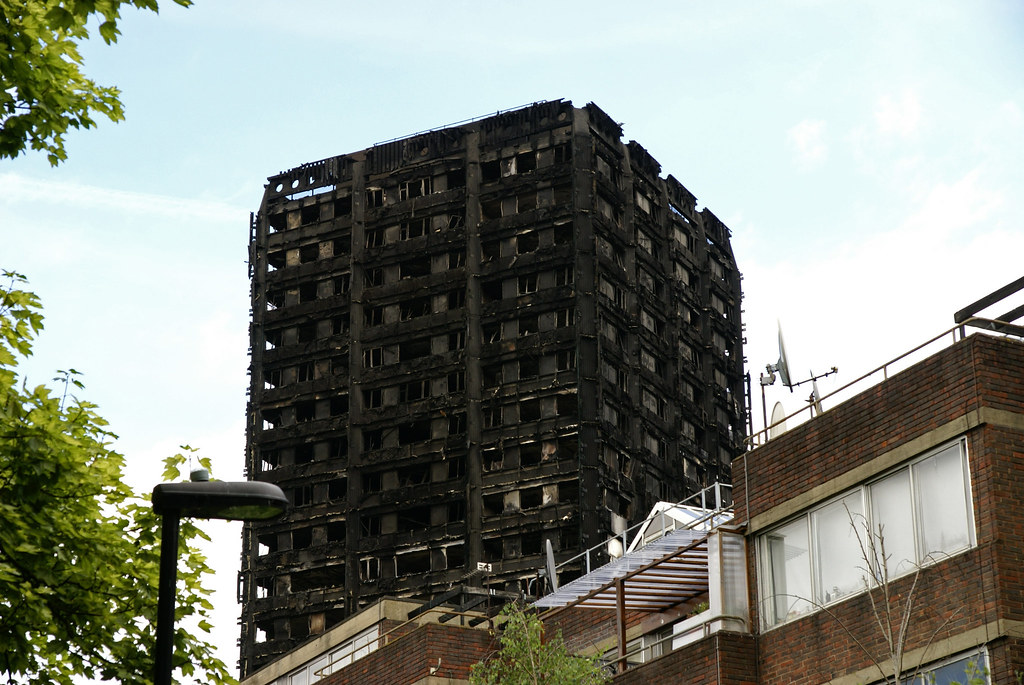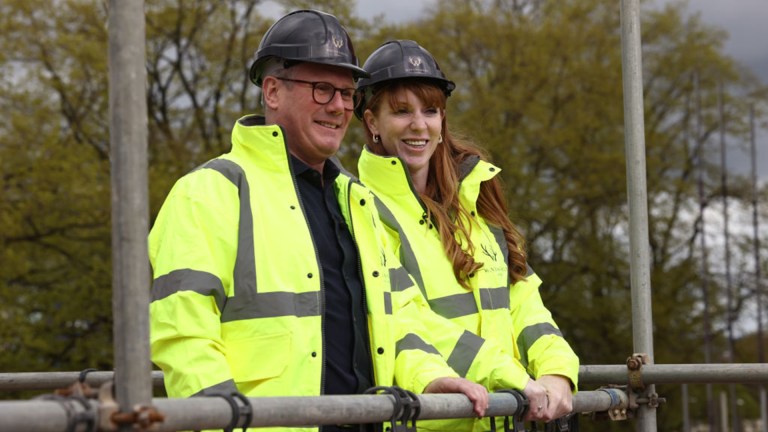Residents and witnesses blamed the external insulation and cladding for the fire’s spread, comparing it to being wrapped in kindling and accusing developers of taking shortcuts with fire safety in a recent renovation.
Initial findings from an inquiry into the disaster found the building’s exterior did not comply with regulations and was the main reason why the fire spread. It was also reported that the fire service was too late in advising residents to evacuate.
As well as the public inquiry ongoing investigations are being carried out by police and the coroner.
What is the Fire Safety Bill?
First introduced by the Government in March last year, the Fire Safety Bill seeks to prevent another tragedy like Grenfell, clarifying who is responsible for managing reducing fire risk in multi-occupied, residential buildings, including external wall cladding and common areas.
The Government says this clarification will “empower fire services to take enforcement action and hold building owners to account if they are not compliant”.
The bill will provide a foundation for follow-up legislation to take forward recommendations from the Grenfell Tower Inquiry’s initial report, which stated that building owners and managers should be responsible for taking further action on fire safety.
This includes keeping evacuation plans up to date, carrying out regular inspections of the property, disseminating fire safety instructions to residents and ensuring the building complies with safety standards.
If the Bill goes through all parliamentary stages and comes into force, it is expected to be referred to as the Fire Safety Act of 2020, and will be an amendment to the The Regulatory Reform (Fire Safety) Order 2005.
How did the Fire Safety Bill come into force?
Labour MPs, as well as some Conservatives, have claimed tenants and leaseholders should not be expected to foot the bill for fire safety improvements being made to buildings – including the removal of cladding.
And the issue has divided not only MPs but also the two houses in Westminster.
Peers in the House of Lords forced the Commons to vote on an amendment to the bill four times, asking for a grants and loan scheme to be put in place to pay for remedial work so leaseholders don’t have to foot the bill.
The ping-pong between the two houses took the bill to the end of the parliamentary session on April 29. Failure to pass the bill at this point would have meant it would have to be re-introduced in the next session and would have resulted in a significant delay as it would have to go through all the scrutinising stages across both houses before being brought into law.
With the threat of a delay looming, Peers allowed the bill to pass unamended with the political row of who will pay for remedial work ongoing.
The latest Commons vote came earlier on April 27 with 320 Conservative MPs voting down the Lords amendment to the Fire Safety Bill to protect leaseholders.
But there were 30 Conservative rebels who voted in favour of the Lords’ amendment – former party leader Sir Iain Duncan Smith among them.
Speaking during that debate, housing minister Christopher Pincher said: “Without the clarification provided by the Bill, it will mean delaying implementation, possibly by a year, of a number of measures that will deliver the Grenfell inquiry recommendations.”
Building safety minister Lord Greenhalgh had called the Lords’ amendment “inappropriate and unworkable”, leading to an impasse that halted the bill’s progress through parliament and into force.
Peers had previously voted with a majority of 86 on April 20 in favour of shielding residents from paying for safety improvements.
The Lords’ previous amendment to the Fire Safety Bill in March had also been defeated in the Commons. Peers proposed that the Government should pay the initial costs of improving a building’s fire safety measures, before recouping this money from developers and cladding companies. MPs rejected the amendment by 322 to 253.
The Lords voted in favour of preventing costs of any remedial work required under a Fire Safety Order from being passed onto leaseholders or tenants.
Around 30 Tory MPs backed an attempt in February to protect leaseholders from unexpected costs, with an amendment tabled by Stevenage MP Stephen McPartland. Despite not being voted upon, the proposal was supported by both Conservative and opposition MPs. This followed claims the Fire Safety Bill could see many freeholders and building owners pass on the costs of any work they are ordered to carry out by the fire service.
What has the Government done to protect residents?
Tory ministers have promised in the House of Commons at least 17 times that leaseholders would not be forced to pay to fix fire safety problems that were not their fault, according to shadow housing secretary Thangham Debbonaire.
Ministers announced significant funding of £5.1bn to tackle unsafe cladding in homes last month which would see the government paying for the removal of unsafe cladding for all leaseholders in high-rise buildings.
But the grants do not cover buildings below 18 metres. Instead leaseholders of flats in lower-rise blocks will be forced to repay costs via a loan scheme, with many residents already having to pay for costly safety measures such as fire patrol.
How has the Government’s action to protect residents been received?
The Government’s refusal to budge on amendments to the Fire Safety Bill has been branded as an “utter disgrace” by opposition MPs.
As the bill moves into law, Labour’s shadow minister for policing and the fire service Sarah Jones said: “At every stage of the Fire Safety Bill, Labour has pushed for protections for leaseholders to be added into the legislation. Each time we gave the Government a chance to do this, they chose to ignore our calls.”
The Government’s £5.1bn funding to help leaseholders clear and replace unsafe cladding has also been criticised, as have rules determining access to grants through the height of buildings.
The Housing, Communities and Local Government (HCLG) Committee has warned £15bn would be an accurate figure for the work required.
MPs on the committee called for a Comprehensive Building Safety Fund that applies to all high-risk buildings of any height, irrespective of tenure, covers all fire safety defects, including combustible insulation and covers all associated costs.
Both the Government and industry should pick up the bill, rather than leaseholders, the committee said.
HCLG Committee chair Clive Betts said: “The Government must prioritise support to where the safety risk is greatest and rebalance the financial burden so that it falls on the Government and industry, and not on leaseholders.”









